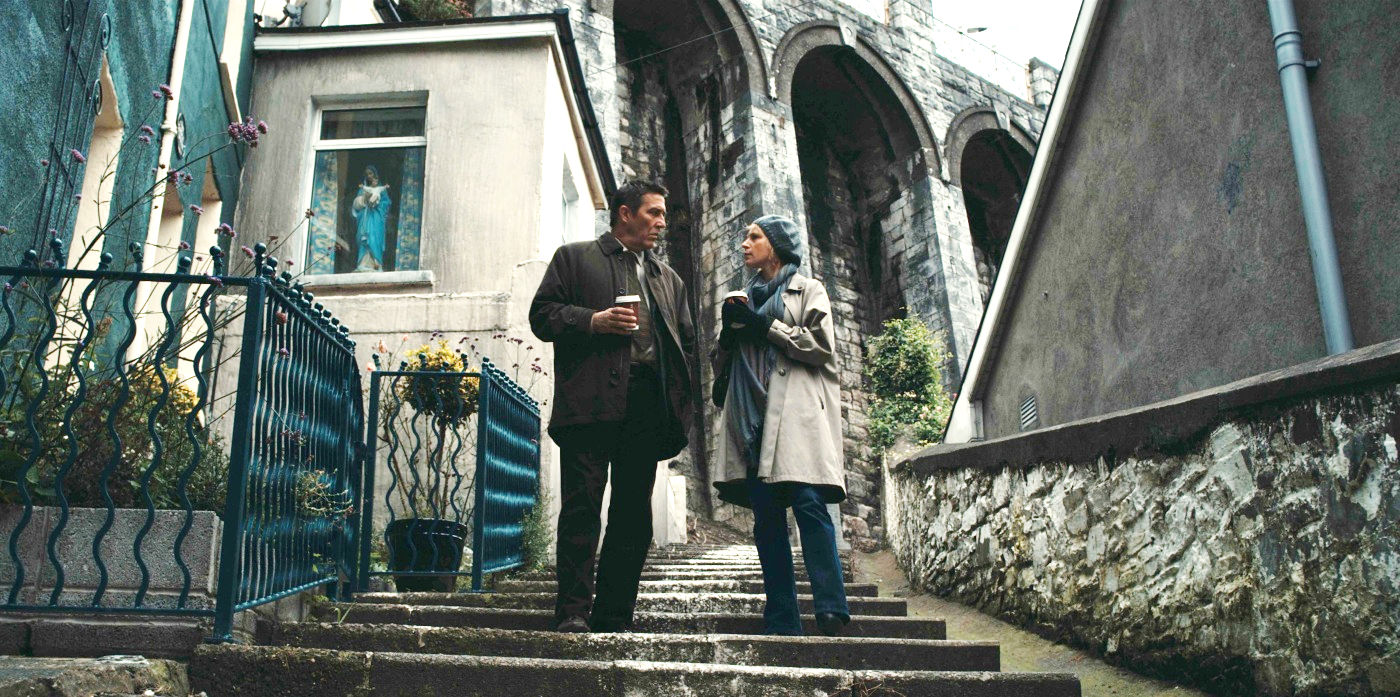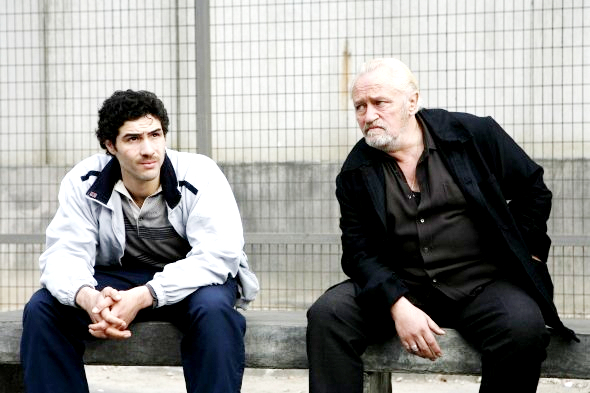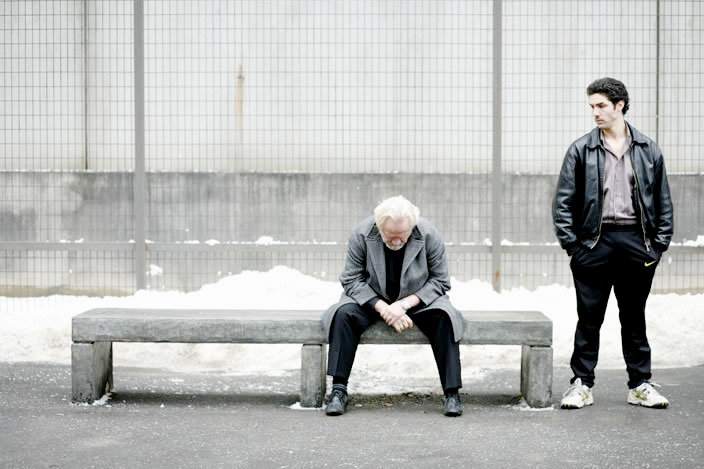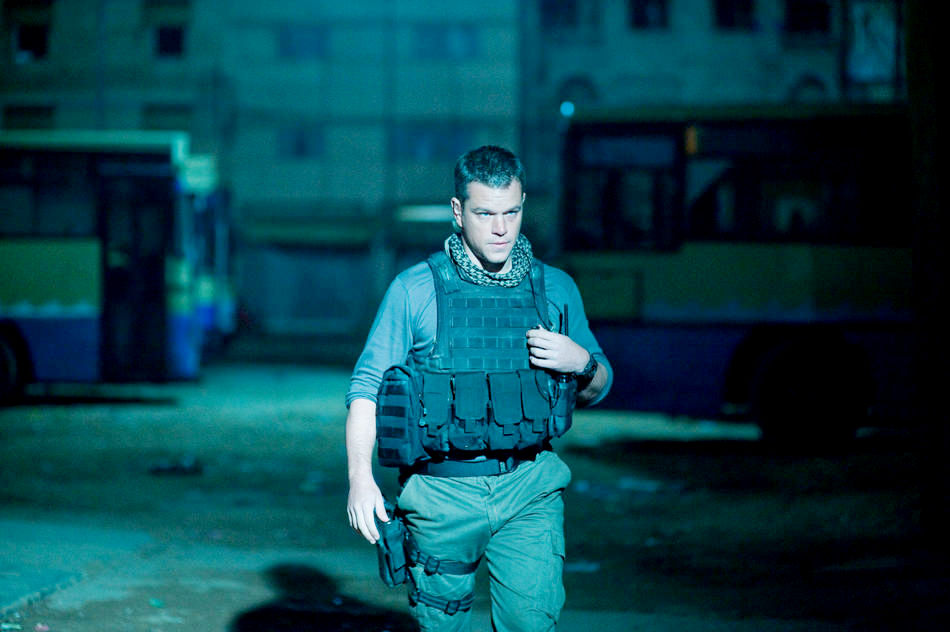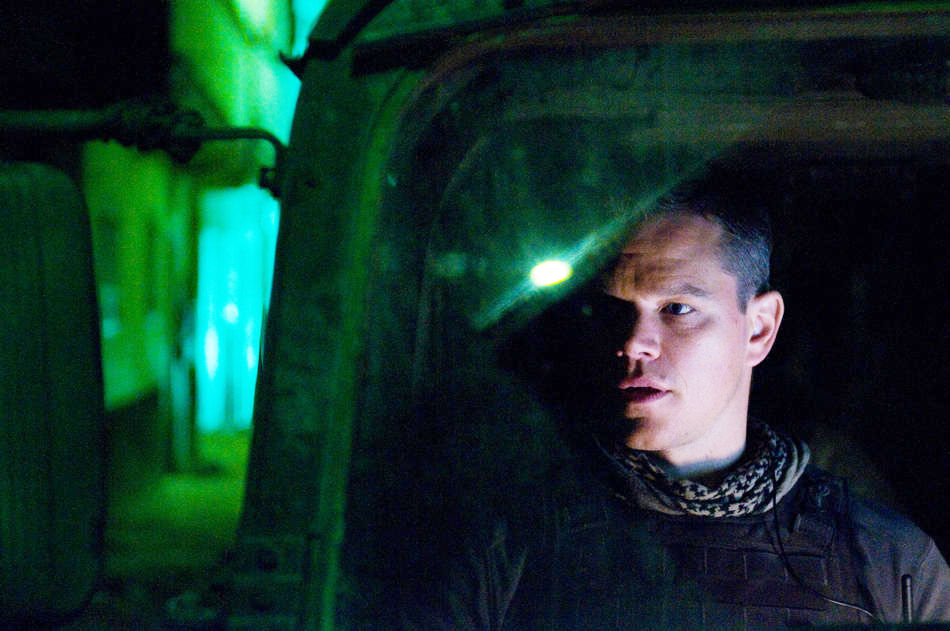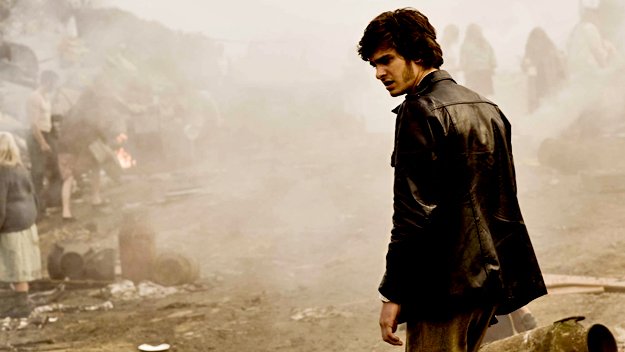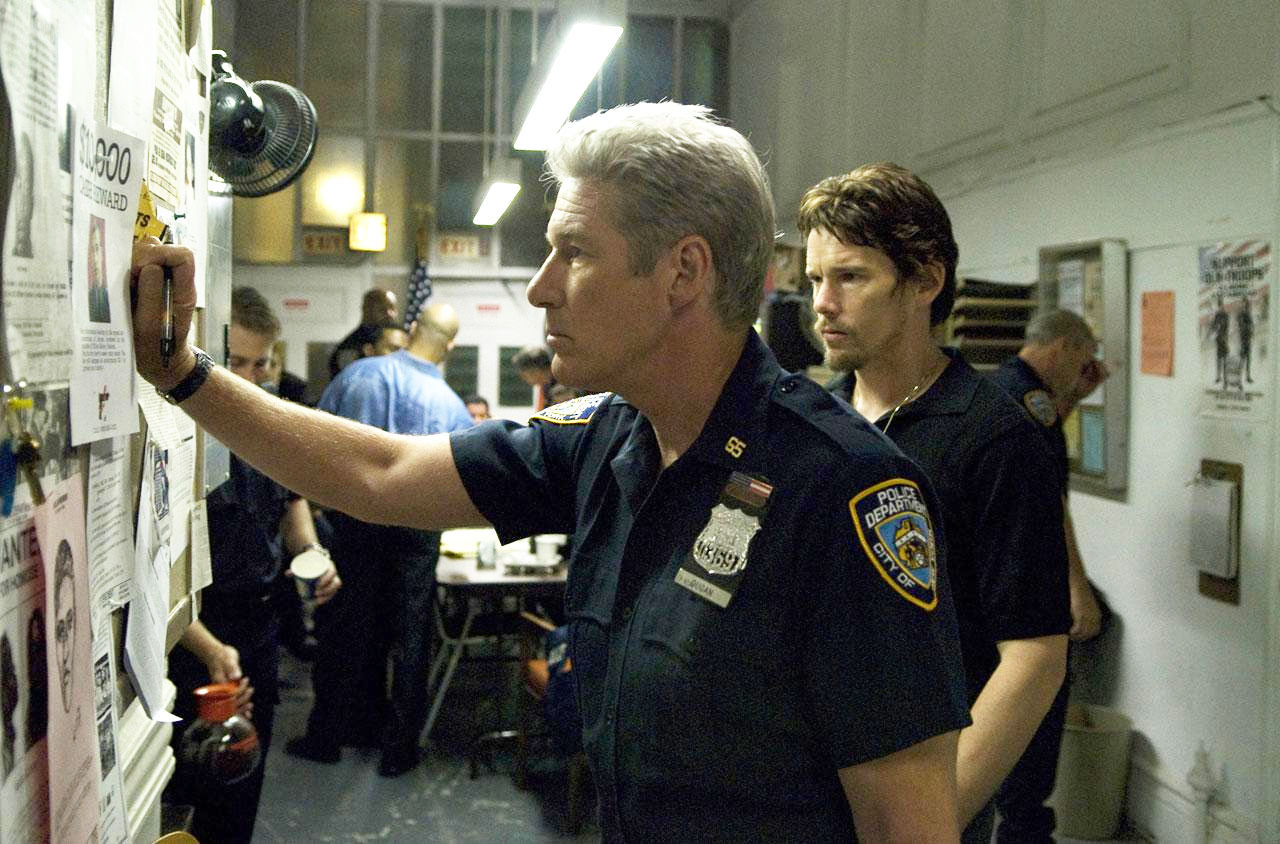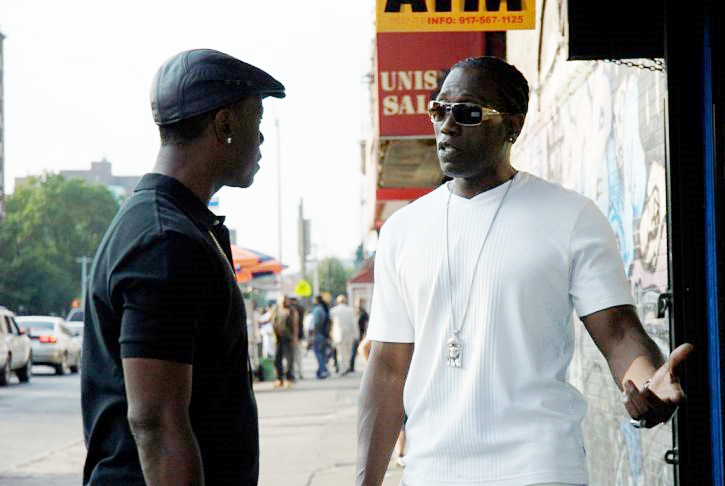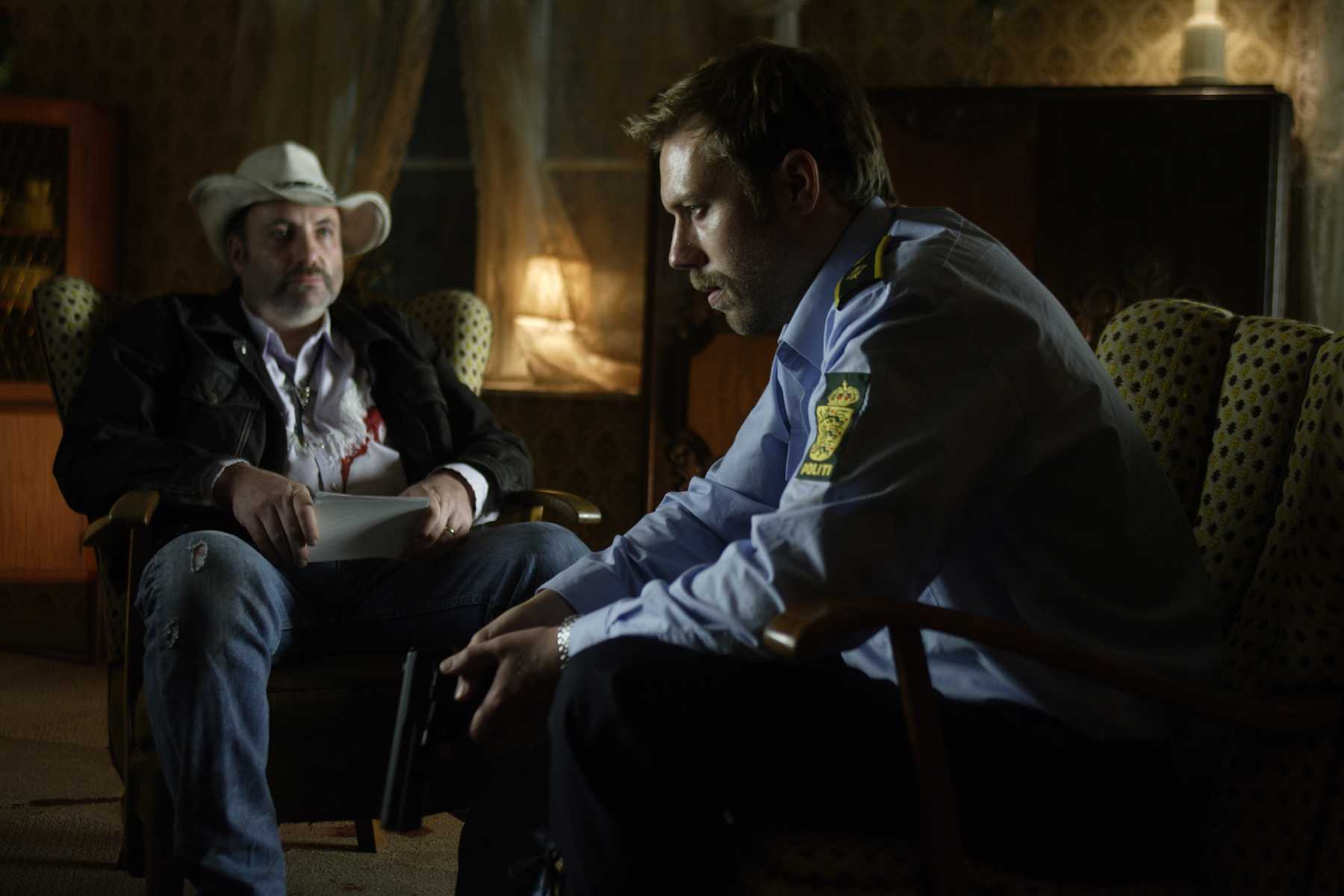
I haven’t seen any of McPherson’s previous films, although my sis and I did catch his play The Seafarer on Broadway a few years ago, about an Irishman (David Morse), his blind older brother (Joe Norton), and their friends (Conleth Hill, Sean Mahon) visited by the Devil (Ciaran Hinds) one gloomy Christmas eve in Dublin. This film — broader and better executed than that rather larky evening of theater, although also somewhat aggravatingly open-ended — carries over some of the same cast (Hinds, Norton), as well as the supernatural goings-on in the Old Country.
And like Seafarer (and, from what I’ve heard of McPherson’s other works, like The Weir), it’s a bit of a strange genre mishmash — part horror flick, part adult romance, part relationship thriller. I can’t say the movie successfully coalesces into anything more than the sum of its parts, but it has the benefit of some likable actors — not only Hinds and Norton but also Iben Hjejle of High Fidelity and Aidan Quinn — and it makes for a decently compelling character piece and Gaelic travelogue for a few hours. Its pleasures may be mostly ephemeral, sure, but I’ve sat through worse ghost stories in my day.
As the film begins, the year is 2008, and in the scenic Irish seaport of Cobh, the locals are preparing for their yearly writing festival, where authors come by to hobnob, do readings, and discuss their latest works. Among the volunteers hosting this event is one Michael Farr (Hinds) a recent widower, shop teacher, and father of two who, late one night, seems to encounter a ghostly intruder in his house. The trick is, the person he thinks he saw — his father-in-law Malachy (Norton) — is still among the living, although he’s definitely withering on the vine in a nearby rest home. Can you see the ghost of someone who isn’t even dead yet?
Before Michael can wrap his mind around this quandary, events at the festival start to consume his attention. Namely, the visit by two authors who happen to share a brief, awkward history: The popular but exceedingly abrasive American writer Nicholas Holden (Quinn), and a lovely but distracted writer of ghost stories, Lena Morelle (Hjejle). Despite his continued grieving for his lost wife — or perhaps because of it, given their mutual interest in apparitions — Michael finds himself drawn to Lena, causing much consternation for Holden, who’s nursing the volatile combination of a giant-sized ego, a drinking problem, and a broken heart. But, quite frankly, angry writers are the least of Michael’s worries — Did I mention this widower has a ghost problem? And they are not going gently into the good night.
To its credit, The Eclipse gets a lot of little things right. The burgeoning romance between Lena and Michael seems natural and unaffected. McPherson subtly underlines the themes of ghosts, memory, and loss by emphasizing empty rooms, empty chairs, and the timelessness of life in Cobh. (The staff at the hotel hosting the festival dress in nineteenth century garb, helping to convey the sense that the spirits of centuries past still inhabit these climes.) And Hinds in particular is compelling throughout, even when the story he’s a part of is not altogether believable.
All that being said, The Eclipse has some problems with tone. It’s not just the sudden lurches from haunted house malevolence to 2nd-chance-at-love-type-stuff back over to unabashed Raimi-esque horror that throw everything off, although they don’t really help that much. (They do keep you on your toes, tho’.) The other issue is Nicholas, who’s written far too broadly compared to everyone else on hand. Michael and Lena seems like real, multi-faceted , and plausible adults, while Nicholas — the best efforts of Aidan Quinn notwithstanding — is basically just an one-dimensional ambassador from the planet Douche, and the movie loses a step whenever it tries to get us to take him seriously.
I also have some quibbles with the ending of the movie, in that the initial haunting aspect is sorta just dropped without explanation. (But, then again, how can you explain ghosts anyway? Maybe this was the best way to go about it.) Still, for all its bizarre shifts in tone, The Eclipse at least has the virtue of originality in its quiver. The Sixth Sense meets Terms of Endearment meets Something Wild in coastal Ireland? I can’t say I’ve ever seen that before.
